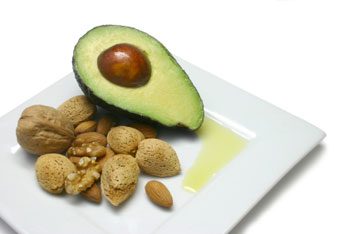
Unexpected saboteurs
You already know that mindless munching and too much time on the couch make weight easy to gain and difficult to lose. But unexpected offenders could also be sabotaging your efforts to maintain a healthy weight or shed those extra pounds. Stay on track with this advice, which is based on the latest research into how and why we lose weight.

1. Overindulging on the weekend
To combat overindulging on Saturday and Sunday, pay attention to portion size, weigh yourself daily (or on Fridays and Mondays only) and watch your alcohol intake, which provides empty calories and lowers your food inhibitions. Researchers have found that people don’t realize they eat markedly more on weekends, particularly on Saturdays, when they tend to consume more fat. Those extra calories slow weight loss.

2. Not eating “good” fats
Eating foods rich in unsaturated fats-such as nuts, avocados and olive oil-may help you eat less overall by sending your brain the message that you’re full. These fats appear to trigger the production of a compound in the small intestine called oleoylethanolamide. It reaches nerve endings that carry messages to the brain to curb hunger, and activates a brain circuit that makes you feel full. To avoid weight gain from healthy fats, limit your intake to two to three tablespoons (30-45 mL) a day-a handful of nuts or one sixth of an avocado.

3. Not getting enough calcium
You need at least 1,000 milligrams of calcium a day from foods-one cup of milk (250 mL), plus one cup of yogurt and a cube of cheese (42 g)-or supplements. For overweight women who are calcium deficient, boosting intake may spur weight loss, according to a 2009 study in the British Journal of Nutrition. Researchers at Laval University in Quebec City studied 63 overweight or obese women who consumed 600 milligrams or less of calcium daily, about half the recommended amount. For 15 weeks, the women followed a low-calorie diet and took either a placebo or 1,200 milligrams of elemental calcium plus vitamin D daily. The women who took calcium lost six times more weight than those who didn’t, shedding 13 pounds compared to two pounds. The brain may detect the lack of calcium and try to compensate by increasing appetite to boost intake, say researchers.

4. Being fooled by snack-size treats
If you can’t stop after eating one mini portion of chips or cookies, separate them so you have a treat in your car, office desk and gym bag. In a 2008 Dutch study, 59 students were given either nine small (45-g) bags of potato chips or two large (200-g) bags to eat while watching TV. Participants who were encouraged to think about calories were almost twice as likely to eat chips from the small bags and, if they did, to eat twice as much as those munching from the big bags. “Small bags seem innocent, so people let their guard down and don’t monitor how much they eat,” explains lead researcher Rik Pieters, a marketing professor at Tilburg University.

5. Eating the wrong amount of carbs
Consuming a diet containing a moderate amount of calories from carbohydrates may help you maintain a healthy body weight. A study in the Journal of the American Dietetic Association examined Canadians’ dietary patterns and observed that people who ate 47 to 64 percent (290-310 g) of their calories per day as carbohydrates were less likely to be overweight or obese, compared to those consuming a lower percentage of carbs. Diets that are too low or too high in carbohydrates are harder to maintain, says lead researcher Anwar Merchant, associate professor of epidemiology at the University of South Carolina. (The study’s findings are in keeping with Health Canada’s recommendations.)

6. You’re 40 or older
That daily muffin might have been okay once, but skip it now if you want to prevent middle-aged spread. “As we age, we lose lean muscle mass, so our metabolism slows down, especially if we don’t exercise every day,” says Larry Tucker, an exercise sciences professor at Brigham Young University in Utah. In a recent study involving 192 middle-aged women, Tucker found that the women who became more restrained in their eating habits were 2.4 times less likely to gain 6* pounds or more over three years compared to those who didn’t become more careful. On average, women who developed greater eating restraint consumed about 200 fewer calories a day than their counterparts.

7. Following a treat-free eating plan
Allowing yourself an occasional treat, such as a special dessert or french fries, may protect you from overdoing it on the wrong foods because you’re always feeling deprived. Having access to some tempting foods, such as candy, rather than banning them outright, may help you avoid temptation. (Just don’t keep your personal trigger foods in the house.) A study in the Journal of Consumer Research examined the differences between real and abstract food temptations. It found that when women were exposed to candy (such as M&M’s) but were asked not to eat it, they were more likely to exhibit self-control when offered the same candy a second time. However, women who were only shown ads or pictures of candy were less likely to show restraint with the real thing.

8. Catching the wrong virus
Yet another reason to wash your hands properly: It’s your best bet to avoid catching adenovirus-36, a human virus that causes upper respiratory infections with symptoms like those of a flu or a cold, and may also make you prone to weight gain. The virus appears to convert adult stem cells into fat cells and is more prevalent in the obese. About 30 percent of obese people in the U.S. have been exposed to it, compared to 11 percent of normal-weight people, according to one screening (no Canadian numbers are available). Animals that were infected with adenovirus-36 gained up to four times as much weight as those without it.
Related:
• 4 myths and truths about weight loss
• 4 reasons you don’t need to lose weight
• 4 quick weight-loss fixes
